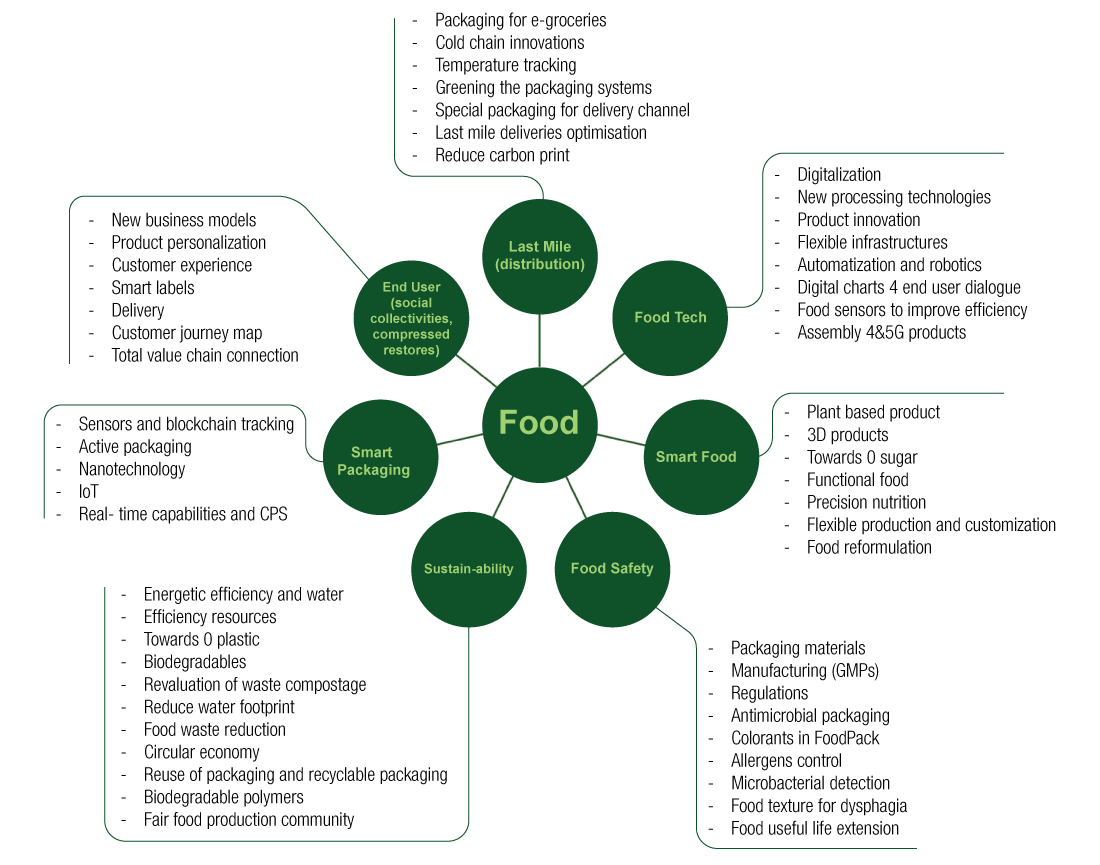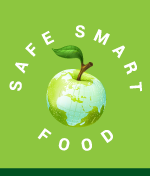
European Strategic Cluster Partnership for Excellence (ESCP-4x)
Project SAFE SMART FOOD; grant agreement – 874389
The Safe Smart Food project is composed by 5 clusters from 4 EU countries
|
Business Upper Austria from Austria
|
 |
| Food Products Quality Cluster from Latvia |
|
Smart Food Cluster from Lithuania
|
 |
| Food Service Cluster from Spain |
|
Packaging Cluster from Spain
|
 |
These organizations have driven this project with the intention of promoting the internationalisation of the associated clusters and their member companies.
The aims of the project are to strengthen the collaboration between clusters and improve their management capacity to create the conditions of a favourable ecosystem in the agri-food sector to boost innovation, competitiveness and internationalisation of SMEs and to offer to the cluster’s SMEs an integrated program of services based on excellence.
The needs of SMEs and the stakeholders involved will be analysed, as well as the final consumers, to offer services more aligned with the strategic trends of the sector, such as food security or lack of added value in the products in question. Subsequently, a 5-year strategy will be established to develop an implementation program of the improvements taken from the study, in line with the consortium’s strategy. The tools to reach it are: innovation, internationalisation, networking, sustainability and C2C conferences.
Clusters will train in depth how to improve cluster governance and management, cluster entrepreneurship, shared value ecosystems between the cluster members and between the clusters themselves and communication and branding.

More concretely, the project aims to:
- Improve and strengthen clusters management capacities and skills towards cluster excellence defining an integrated training and learning program facilitating the upgrade of their Cluster Excellence Level.
- Define and implement a program of services based on excellence to the cluster’s members with the aim to improve competitiveness, innovation and internationalization of SMEs, giving answer to the needs of SMEs.
- Develop and implement a comprehensive individually cluster strategy with the aim to work through the excellence, strengthening cluster capacity and supporting the growth and competitiveness of their members
- Develop and implement a common strategy and define a roadmap to facilitate the collaboration of the consortium for a long term. The common strategy will facilitate the collaboration of the consortium to operate together at European level at both commercial and non-commercial level (investment, permanent improvement, best practices, etc.)
- Strengthen networking among the consortium and their members through the organisation and participation in B2B, C2C, and matchmaking and networking events.
- Include a multi-stakeholder’s perspective and multi-sectorial approach to address the main sector’ challenges involving main stakeholders and end-consumers among and beyond the consortium, involving them in the definition of the cluster strategy and collaboration and networking events.
- Contribute to rise-awareness on the clusters activities and COSME Excellence program disseminating the project results and objectives achieved.
- Promote the exchanges of best practices, know-how and lessons learned to replicate and capitalize the project activities.
- Support interregional cooperation among clusters and SMEs based on smart specialisation priorities linked to the food and packaging sector defined by regional and national government to achieve a more competitive and sustainable food system.
The total budget for the Safe Smart Food is 456,623€ with a contribution of 347,467€ by the European Union and 20 months to carry out the task.
What are Your benefits from Safe Smart Food?
- Cluster members will have an access to permanent training and learning programme. The publication of the E-Book addressed to clusters members with the main content of the training session that will guarantee the sustainability of this action.
- Access to trainings to be internationalized and be available to reach new business opportunities
- Participation of common activities focused on B2B to identify business opportunities
- Have an access to strategic partner information to create a favorable ecosystem and identify common projects and activities
- Participate in exchanges and strategic partnering between clusters and specialized eco-systems across Europe, including through implementing a new “ClusterXchange” pilot scheme
-
Participation in hackathons solving food industry challenges



